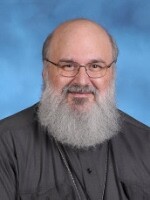(Jesus) entered Jericho and was passing through it. A man was there named Zacchaeus — Luke 19: 1
When it comes to compiling a list of favorite people, not too many folks would place tax collectors on the list. When people touch your money, they touch something deeply important to you.
Zacchaeus was a tax collector. That was bad enough. But Zacchaeus had the added baggage of being a tax collector for a repressive, violent foreign government, a job that came with its fair share of graft, kickback and corruption. The gospel describes Zacchaeus as being “small.” This not only describes his physical stature but also the kind of life decisions he had made. He had chosen to be small of soul and of heart when it came to dealing fairly with his fellow Jews.
Then comes Jesus. The rabbi’s reputation preceded him, sparking Zacchaeus’ interest. Perhaps he had heard him preach, or, at least, had heard some of what he taught. This had peaked his interest. So when word comes that Jesus was going through town, Zacchaeus wanted to see him. Imagine the people who line up for hours at the Oscars or the Emmys to see the stars pass by and you get the picture.
He was trying to see who Jesus was, but on account of the crowd he could not, because he was short of stature. — verse 3
Being short, Zacchaeus could not see. But he was not going to let this moment pass him by. So, at the risk of looking foolish, this corrupt, hated official scampers up into the branches of a nearby tree to catch sight of Jesus.
Jesus draws near and looks up into the branches to the partially concealed tax collector. Did Jesus see him climb up there? Had he heard people grumble against him? Or did Jesus sense that the heart of this little man was ready for growth, ripe for conversion? The gospel is silent about this, but the humor of the moment could not have been lost on him. Jesus looks up and calls him by name. These two men had supposedly never met, yet now the Word utters the name and both recognize each other; emptiness in the face of fullness, the promise of wholeness before the reality of human brokenness.
“Zacchaeus, come down immediately. I must stay at your house today — verse 5
Jesus once more reaches out to one despised by his neighbors and labeled a “sinner.” Yet when Jesus invites himself over to Zacchaeus’ home, a change comes over this hated soul. Somehow the entrance of the Light of the World into his personal world dispels his inner darkness and he decides to clean up his act.
But Zacchaeus stood up and said to the Lord, “Look, Lord! Here and now I give half of my possessions to the poor, and if I have cheated anybody out of anything, I will pay back four times the amount.” — verse 8
We are not told how the crowd reacted to this conversion experience. Perhaps their self-righteous was deflated. Perhaps they were angry that they had lost their convenient whipping-boy. Perhaps a few at least were pleased with this change taking place. We do know how Jesus reacted:
“Today salvation has come to this house, for the Son of Man came to seek out and save the lost.” — verse 10
From time to time we all get lost, we all wander into places and occasions we should stay away from. Jesus understands this all too well; it does not surprise him in the least. That is why, possibly, he invited himself to Zacchaeus’ house. He knew that, as beaten down as he had been, the tax man would never have invited Jesus himself.
Maybe you feel you have wandered too far, been away too long, for Jesus to ever wish to dine with you, to share the road with you, to stoop down and carry you. Well, you would be wrong, wrong, wrong! Jesus loves you. This is not some trite expression. He sees you as you are, he sees what you can become with his help, guidance and strength, and he lovingly asks to be allowed to relax awhile with you.
So get out of your tree, open the door, put the coffee on…and be at peace!

Tom Yeshua is the pen name of Thomas E.L. Cloutier OFS, a transitional deacon who taught theology for 30 years at Nashua (N.H.) Catholic Regional Junior High School. He earned a bachelor’s degree from Don Bosco College in Newton, N.J., and a master’s in divinity and theology from St. John’s Seminary in Brighton, Mass.
